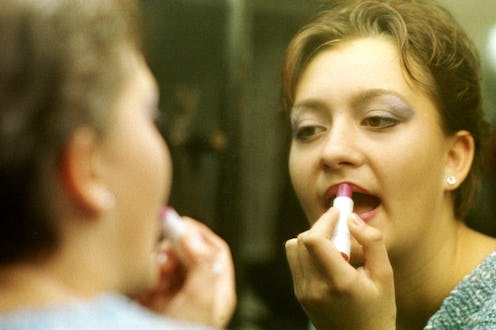Style
#Likeagirl is Empowering, But Also Manipulative
My Twitter and Facebook feeds have been chock full of lady news lately, some uplifting and some horrific. One video I’ve seen over and over is the new Always #likeagirl campaign ad, where people of varying ages are asked to do things "like a girl." The older subjects take this directive to mean they should act weak and frail, while young girls didn't yet get the memo that acting like a girl means acting like a wimp. When told to run "like a girl," they break into a fierce sprint.
Of course this ad is incredibly powerful. As we’ve learned from Mad Men, all effective ads appeal to our emotional selves; that’s why we want to buy stuff. We identify with it or the message moves us. In Lucia Peter’s article for Bustle on the ad, she explains that Always and its parent company P&G surveyed 1,300 American women between the ages of 16 and 24 to collect data for the campaign. Over half of the women said that their confidence dropped at puberty. A measly 19 percent “had a positive association with the phrase ‘like a girl.’” So in their target demographic, the data that they collected (otherwise known as market research) served to tell them exactly what we wanted to hear. In fact, 57 percent of respondents said they’d like to see an ad that portrayed “like a girl” in a positive light.
While surprising and empowering, this ad, along with Pantene’s Not Sorry video and Dove’s Real Beauty campaign, should be approached with a healthy dose of cynicism and critique. Campaigns like this are certainly more positive and empowering than some of the alternative advertisements out there, but it's difficult to ignore the fact that they are responding to low self-esteem that's due, at least in some part, to media and advertising.
“Elastic body image” refers to the theory that our self-image is unstable and mutable, mostly because our reference points are constantly changing. The “ideal body” of the 1920s is very different from that of the 1990s, for example. Our body image — and opinion of ourselves more broadly — is largely affected by the images we receive about beauty ideals. So, these companies advertising products to mask the smell of our periods, whiten our teeth, smooth our skin and hair, and brighten the circles under our eyes have hugely impacted how we see ourselves. We are bombarded with these images all the time. As Jessica Valenti points out, we should also not forget that Unilever, Dove’s parent company, produces skin-lightening creams. Love your body! And appreciate real beauty!… as long as you’re white? And Pantene ran this ad in Brazil, a photo of a woman with ample cleavage with the tiny text “Make sure your hair is the second thing he looks at.” You know why? It’s not because that’s empowering to Brazilian women. It’s because that’s what sells shampoo in Brazil.
Have these companies been reading the pickup artist manifesto The Game?These companies are negging us, a classic technique of male pick up artists in which they undermine the confidence of the woman they are hoping to pick up by making snide or backhanded comments about her, then follow it up with some plastic compliment. “You’re the prettiest redhead I know.” “I normally think girls with braces are gross, but you’re pretty sexy.” “You’re so lucky you have small boobs, it makes you look tiny.” Like pick up artists with boy band eyebrow piercings, these companies put us down to pick us up. They insult us, either explicitly with skin lightening creams or implicitly by implying we aren’t doing enough to be beautiful (Straighten your hair! Lighten your teeth! Cover your BO!). And then they come back and hold our hands, rub our shoulders and throw glitter at us, telling us we’re doing great?
The bottom line is this: these are for-profit companies, not non-profit organizations. They use basic economic principles of supply and demand to sell products. There is a demand for menstrual products, and Always filled a gap in the market when there was one, but now the market is saturated. We know what kind of tampons we like, which shampoo works best for us, which BB cream is beauty editor-approved. If companies selling products mainly to women want our business, they have to be crafty. We are a huge market. This is a clever ad campaign trend, aimed at selling us a product in a creative way. It used to be the case that explicitly feeding our insecurities made products fly off the shelves, but we’re hip to that now. We shouldn’t be manipulated by these “movements” any more than we should buy teeth whitening products because no one will love us if our teeth are yellow.
The bottom line is that the insecurity problem isn’t us, it’s them. And it always has been.
